
https://ebookmass.com/product/auerbachs-wilderness-
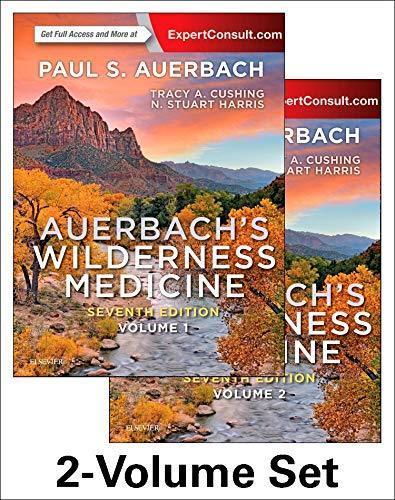
Instant digital products (PDF, ePub, MOBI) ready for you
Download now and discover formats that fit your needs...
Goldman-Cecil Medicine, 2-Volume Set (Cecil Textbook of Medicine) 26th
https://ebookmass.com/product/goldman-cecil-medicine-2-volume-setcecil-textbook-of-medicine-26th/
ebookmass.com
Principles and Practice of Sleep Medicine - 2 Volume Set 7th Edition Meir H. Kryger Md. Frcpc
https://ebookmass.com/product/principles-and-practice-of-sleepmedicine-2-volume-set-7th-edition-meir-h-kryger-md-frcpc/
ebookmass.com
Auerbach’s Wilderness Medicine 7th Edition Paul S. Auerbach Et Al.
https://ebookmass.com/product/auerbachs-wilderness-medicine-7thedition-paul-s-auerbach-et-al/ ebookmass.com
Jinxed Amy Mcculloch
https://ebookmass.com/product/jinxed-amy-mcculloch/
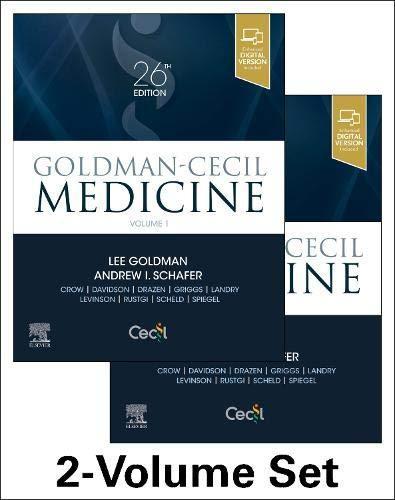
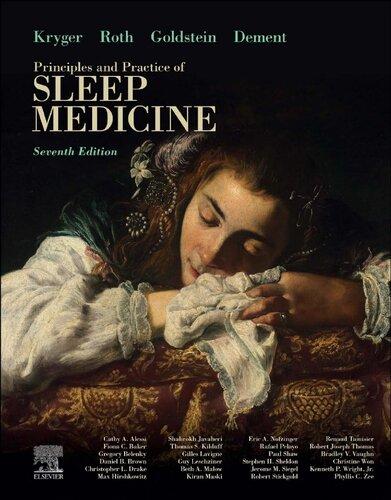
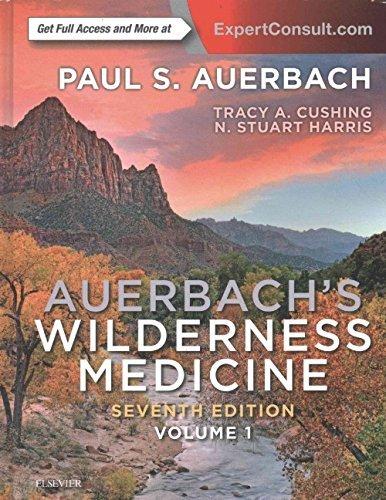

ebookmass.com
Green Approaches in Medicinal Chemistry for Sustainable Drug Design 1st Edition Bimal K. Banik (Editor)
https://ebookmass.com/product/green-approaches-in-medicinal-chemistryfor-sustainable-drug-design-1st-edition-bimal-k-banik-editor/
ebookmass.com
Bound By Vengeance (Born in Blood Mafia Chronicles Book 5) Cora Reilly
https://ebookmass.com/product/bound-by-vengeance-born-in-blood-mafiachronicles-book-5-cora-reilly/ ebookmass.com
Loki Ascending Asa Maria Bradley
https://ebookmass.com/product/loki-ascending-asa-maria-bradley-2/
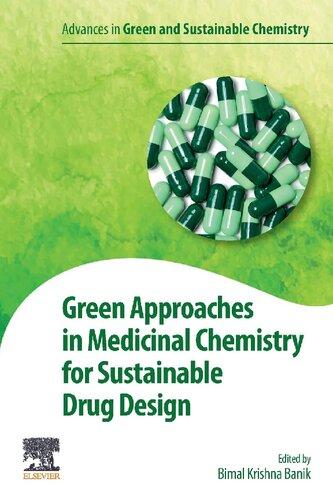


ebookmass.com
Silver Fake: A Hot Over 40 Romance (Tempted in Texas Book 2) Stella Banks
https://ebookmass.com/product/silver-fake-a-hot-over-40-romancetempted-in-texas-book-2-stella-banks/ ebookmass.com
Nimitz at War Craig L.
https://ebookmass.com/product/nimitz-at-war-craig-l/
ebookmass.com


The Billionaire's Best Friend: A Contemporary Christian Romance (Billionaire Next Door Book 2) Elizabeth Maddrey
https://ebookmass.com/product/the-billionaires-best-friend-acontemporary-christian-romance-billionaire-next-door-book-2-elizabethmaddrey/
ebookmass.com

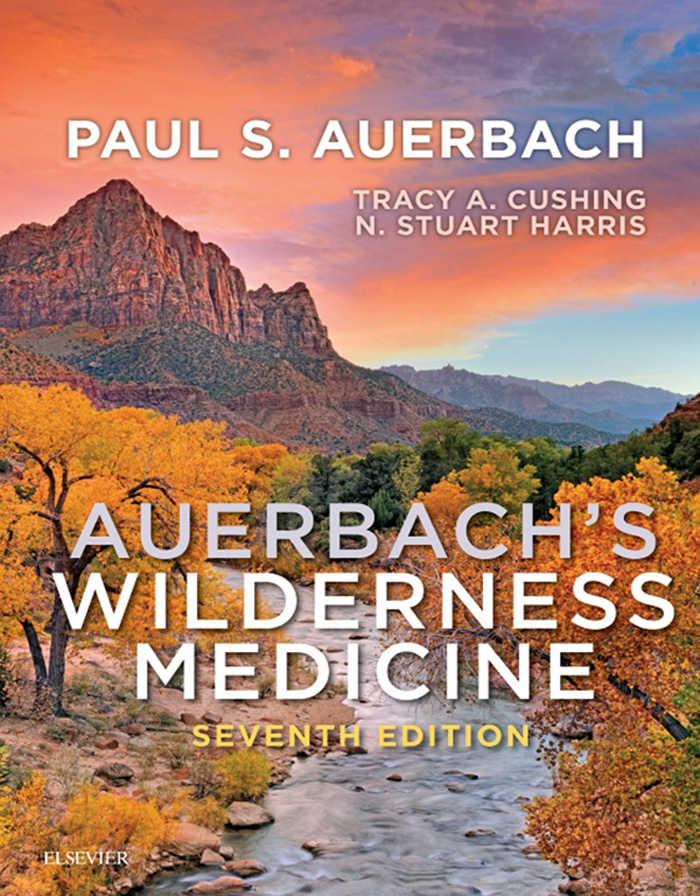
Part 8
Part 10
Part 11
Part 13
Part 1 Mountain Medicine
Chapter 1 High-Altitude Physiology
Definitions
The Environment of High Altitude
Acclimatization to High Altitude
References
Chapter 2 High-Altitude Medicine and Pathophysiology
High-Altitude Syndromes
Other Medical Concerns at High Altitude
References
Chapter 3 High Altitude and Preexisting Medical Conditions
A General Framework for Evaluating Travelers with Underlying Medical Conditions
Specific Medical Conditions at High Altitude
Medication Considerations in High-Altitude Travelers with Underlying Medical Problems
References
Chapter 4 Avalanches
Properties of Snow
Avalanche Dynamics
Identifying Avalanche Terrain
Factors That Contribute to Avalanche Formation
Safe Travel in Avalanche Terrain
Avalanche Rescue
The Avalanche Victim
Avalanche Victim Physiology and Medical Treatment after Rescue
Summary
Acknowledgments
References
Chapter 5 Lightning-Related
Historical Overview,,,
Injuries
and Safety
Modern Lightning Myths and Misconceptions
Incidence of Injury
Early Scientific Studies and Invention of the Lightning Rod
Physics of Lightning Stroke
Mechanisms of Injury by Lightning*
Pathophysiology of Lightning Injury
Injuries From Lightning,,,
Recognition and Acute Treatment of Lightning Injuries,
Forensic Investigation
Precautions for Avoiding Lightning Injury
Controversies and Ongoing Research in Lightning Injury,
Lightning Detection and Data Applications
References
Part 2 Cold and Heat
Chapter 6 Thermoregulation
Conceptualizing the Thermoregulatory System
Basics of Core Temperature
Consequences of Altered Core Temperature
Monitoring Temperature of the Core and Other Sites
Physical Factors That Govern Heat Exchange: the Heat Balance Equation
Thermoregulatory Network
Effector Responses
Evaporative Cooling
Metabolic Adjustments
Behavioral Adjustments
Important Modifications of Thermoregulatory Responses
Induced Alterations of the Regulated Temperature
Altered System Responsiveness and Capacities
References
Chapter 7 Accidental Hypothermia
Epidemiology
Normal Physiology of Temperature Regulation
Pathophysiology
Predisposing Factors
Presentation
Laboratory Evaluation
Treatment
Fluid Resuscitation
Rewarming Options
Cardiopulmonary Resuscitation
Cerebral Resuscitation
Resuscitation Pharmacology
Resuscitation Complications
Forensic Pathology
Outcomes
References
Chapter 8 Immersion into Cold Water
History and Epidemiology
Physiologic Responses to Cold-Water Immersion with the Head Above Water
Factors That Affect Cooling of the Body's Core
Cold-Water Survival
Physiologic Responses to Cold-Water Submersion with the Head Under Water
Rescue (Self-Initiated or Assisted)
Medical Management
References
Chapter 9 Frostbite
History of Frostbite
Epidemiology
Anatomy and Physiology
Pathophysiology of Frostbite
Definitions and Classifications
Contributing Factors
Clinical Presentation
Field Treatment
Definitive Treatment (Immediate Treatment)
Evaluation and Treatment in the Hospital
Surgical Treatment
Long-Term Sequelae of Frostbite
Prediction of Individuals at Risk
Prevention
Potential Future Developments: Preventive Strategies
Possible Future Treatments
References
Chapter
10
Nonfreezing Cold-Induced Injuries
Epidemiology
Physiology
Pathophysiology
Risk Factors
Clinical Presentation
Treatment
Assessing Injury Severity
Prevention
More Severe Injuries
Trench Foot (Immersion Foot)
Pernio (Chilblains)
Raynaud's Phenomenon
Cryoglobulinemia
Cold Urticaria
References
Chapter 11 Polar Medicine
The Distinction between Arctic and Antarctic Medicine
Importance of Polar Medicine
Brief History of Human Habitation in Polar Regions
Arctic Medical Problems
Antarctic Medical Practice
Overview and Future Developments
Acknowledgments
References
Chapter 12 Pathophysiology of Heat-Related Illnesses
Heat Stress and Thermoregulation
Heat Illnesses
Heatstroke Epidemiology and Risk Factors
Pathophysiology of Heatstroke
Heatstroke Treatments (See Chapter 13)
Heatstroke Prevention
Genetic Polymorphisms
References
Chapter 13 Clinical Management of Heat-Related Illnesses
Exertional Heat Illness
Adaptation to Environmental Conditions
Acknowledgments
References
Part 3 Burns, Fire, and Radiation
Chapter 14 Wildland Fires
Wildland Fire Management and Technology
Wildland-Urban Interface: New Look at a Historical Problem
Wildland Fire Behavior
Fire-Related Injuries and Fatalities
Wildland-Urban Interface Fire Survival: Principles and Techniques
Wildland Fires and Human Behavior
Concluding Remarks
Acknowledgments
References
Chapter 15 Emergency Care of the Burned Patient
Epidemiology
Physiology
Types of Burns
Clinical Presentation
Treatment
Inhalation Injury
Other Considerations
References
Chapter 16 Exposure to Radiation from the Sun
Solar Radiation
Acute Effects of Ultraviolet Radiation on Skin: Sunburn and Tanning
Phototrauma
Sun and Skin Cancer
Photoprotection
Photosensitivity Disorders
Tips for the Wilderness Enthusiast
References
Chapter 17 Volcanic
Mt Vesuvius, AD 79
Eruptions, Hazards, and Mitigation
Volcanoes and Their Global Distribution
Types of Volcanoes
Volcano Hazards
Risk Reduction from Volcanic Hazards
References
Part 4 Trauma
Chapter 18 Wilderness Trauma and Surgical Emergencies*
Wilderness Trauma Emergencies Overview
Primary Survey
Secondary Survey
Adjuncts to Surveys
Advances in Wilderness Care Adapted From Combat Medicine
Injuries to the Head, Face, and Neck
Injuries to the Thorax
Blunt Cardiac Injuries
Traumatic Asphyxia
Penetrating Chest Wounds
Injuries to the Abdomen
Pelvic Trauma
Extremity Trauma
Wilderness Surgical Emergencies
Anal Fissure and Hemorrhoids
Urologic Emergencies
Skin and Soft Tissue Infections
Sterility in the Austere Environment
Anesthesia in the Wilderness
References
Chapter 19 Emergency Airway Management
Airway Anatomy
The Decision to Intubate
Basic Airway Management
Airway Obstruction From a Foreign Body
Suction
Supplemental Oxygen
Ventilation
Advanced Airway Management
Alternative Strategies for the Difficult Airway
Alternative Airway Adjuncts and Techniques
Surgical Airway Management
Airway Equipment for the Wilderness
References
Chapter 20 Management of Facial Injuries
History and Examination of Facial Injuries
Diagnosis and Treatment of Facial Injuries
Prevention of Facial Trauma
References
Chapter 21 Wound Management
Types of Wounds and Definitions
Clinical Presentation
Treatment
Complications
Wound Care Kit
References
Chapter 22 Wilderness Orthopedics
Scope of the Problem
Physical Examination
Potentially Life-Threatening Musculoskeletal Injuries
Upper Extremity Injuries
Hip and Leg Injuries
Other Soft Tissue and Musculoskeletal Injuries
Overuse Syndromes and Special Considerations
Spinal Disorders
Corticosteroid Injections
Returning to the Wilderness after Total Joint Replacement
Prosthetics in the Wilderness
New Technologies for Casting and Bracing
Decisions About Evacuation
References
Chapter 23 Splints and Slings
Spine Immobilization
Splinting of the Extremities
Techniques of Splinting
References
Chapter 24 Taping and Bandaging
Taping
Bandaging
References
Chapter 25 Foot Problems and Care
Blisters of the Foot
Common Foot and Ankle Injuries
References
Chapter 26 Hunting and Fishing Injuries
Hunting Injuries
Fishing Injuries
References
Chapter 27 Tactical Medicine
History of Tactical Medicine
Shared Principles of Military Tactical Combat Casualty Care and Civilian
Tactical Medicine
Principles of Civilian Tactical Medicine
The Tactical Mission
Reserve Programs
Uniforms and Personal Protective Gear
Education and Training Programs
Future of Tactical Medicine
References
Chapter 28 Combat and Casualty Care
Background
Battlefield Medicine Versus Standard Civilian Prehospital Care
The Basics of Military Medicine
Blast Injuries
Tourniquets and Hemostatic Agents
Management of the Airway in Combat and Civilian Trauma
Chest Trauma
Fluid Resuscitation
Medication
Burns
Mild Traumatic Brain Injury
Initial Approach to Wound Care
Pain Management
Unique Aspects of Military Triage and Mass Casualties
Traumatic Emotional Stress: the Continuum of Effects
Telemedicine
Unexploded Ordnance
Death
References
Chapter 29 Injury Prevention
Principles of Wilderness Injury and Prevention
Individual Factors and Injury Prevention
The Physical Environment and Injury Prevention
Unique Risks of Select Wilderness Activities
References
Part 5 Animals and Zoonoses
Chapter 30 Bites and Injuries Inflicted by Wild and Domestic Animals
General Epidemiology
Typical Victim
Circumstances Surrounding and Prevention of Animal Bites: Animal Behavior
Basic Principles for Avoiding Animal Bites
Evaluation and Treatment of Injuries
Wild Animal Attacks
Venomous Mammals
Domestic Animal Attacks
Medicolegal Considerations
References
Chapter 31 Rabies
Current Status
The Rabies Virus
Rabies IN the United States
Rabies In Other Countries
Features of Human Rabies
Therapy
Rabies Considerations for Travelers
Other Lyssaviruses
Current Rabies Developments
Rabies Remains a Neglected Global Public Health Crisis
Acknowledgment
References
Chapter 32 Bear Behavior and A�acks
North American Bears
Prevention and Risk Reduction
Bear-Induced Injuries
Acknowledgment
References
Chapter 33 Alligator and Crocodile A�acks
Characteristics, Lifestyle, and Habits
Feeding and Predation Habits
Overview of Attacks
Treatment of Crocodilian Bites
Prevention of Crocodilian Attacks
If an Attack Occurs
References
Chapter 34 Wilderness-Acquired Zoonoses
Anthrax
Bartonella Infections
Brucellosis
Glanders
Leptospirosis
Melioidosis
Rat-Bite Fever
Plague
Tularemia
Avian/Swine Influenza
Cowpox and Monkeypox Infections
Hantavirus Pulmonary (Cardiopulmonary) Syndrome
Hendra Virus
Nipah Virus
Cysticercosis (Taeniasis)
Echinococcosis
Trichinellosis
Variant Creutzfeldt-Jakob Disease
Acknowledgment
References
Chapter 35 Bites by Venomous Reptiles in Canada, the United States, and Mexico
Venomous Snakes
Venomous Lizards
Considerations before Going Into the Wilderness
References
Chapter 36 Bites by Venomous and Nonvenomous Reptiles
Worldwide
Dangerous Reptiles
Venomous Snakes
Identification of Venomous Snakes
Venom Composition,,,
Epidemiology of Snakebite
Distribution of Venomous Snakes
Snakebite Mortality and Morbidity
Clinical Features of Envenoming and Pathophysiologic Mechanisms
Clinical Pattern of Envenoming by Different Taxa of Venomous Snakes
Course and Sequelae of Envenoming
Laboratory Investigations
Management of Snakebite,,,,,,,
Prevention of Snakebite
Venomous Lizards
Dangerous Large Reptiles
References
Chapter 37 Ranch and Rodeo Medicine
Ranch Medicine
Rodeo Medicine
References
Chapter 38 Emergency Veterinary Medicine
Dogs
Large Animals
References
Part 6 Insects and Arachnids
Chapter 39 Mosquitoes and Mosquito-Borne Diseases
Mosquitoes
Diseases Caused by Mosquitoes
Mosquito Control
Acknowledgements
References
Chapter 40 Malaria
Epidemiology
Malaria Parasite
Clinical Manifestations and Pathogenesis
Diagnosis
Prevention
Treatment
Research and Vaccine Development
Resources
References
Chapter 41 Arthropod Envenomation and Parasitism
Hymenoptera (Bees, Wasps, and Ants)
Lepidoptera
Centipedes and Millipedes
Millipedes
Hemiptera (Sucking Bugs)
Beetles and Other Insects
Diptera (Two-Winged Flies)
Lice (Order Anoplura)
Fleas (Order Siphonaptera)
Mites (Class Arachnida, Order Acarina)
General Treatment of Insect Bites
Protection and Prevention
Delusions of Parasitosis
Conclusion
References
Chapter 42 Tick-Borne Diseases
Ixodid Ticks
Argasid Ticks
Ticks as Poisonous Arthropods
Ticks as Vectors of Infectious Diseases
Tick-Borne Borrelial Diseases
Relapsing Fevers
Tick-Borne Viral Diseases
Tick-Borne Rickettsial Diseases
Q Fever
Ehrlichiosis and Anaplasmosis
Babesiosis
Tularemia
Tick-Borne Disease Prevention and Awareness
References
Chapter 43 Spider Bites
Spiders and Their Venoms
General Assessment and Treatment of Spider Bites
Guide to Spider Diversity and Identification
Suborder Mygalomorphae
Suborder Araneomorphae
References
Chapter 44 Scorpion Envenomation
Scorpion Biology
Regional Considerations: Epidemiology, Risk Factors, and Treatment
Pathophysiology and Clinical Effects
Differential Diagnosis
Treatment
Prevention
References
Chapter 45 Protection from Blood-Feeding Arthropods
Mosquitoes (Family Culicidae)
Blackflies (Family Simuliidae)
Biting Midges (Family Ceratopogonidae)
Tabanids (Family Tabanidae)
Sand Flies (Family Psychodidae)
Tsetse Flies (Family Glossinidae)
Stable Flies (Family Muscidae)
Kissing Bugs (Family Reduviidae)
Fleas (Family Pulicidae)
Chigger Mites (Family Trombiculidae)
Ticks (Families Ixodidae and Argasidae)
Personal Protection
References
Part 7 Surgical and
Medical Interventions
Chapter 46 Improvised Medicine in the Wilderness
General Assessment and Vital Signs
Improvised Diagnostic Equipment and Supplies
Improvised Treatment Equipment and Supplies
Improvised Airway Management (See Chapter 19)
Improvised Wound Management
Cleaning and Reusing Medical Supplies and Equipment
Blister Management
Removal of Objects
Trauma
Improvised Treatment for Orthopedic Injuries
Splinting and Traction Methods
Trauma and Hypothermia
Eye, Ear, Nose, Mouth, and Throat Improvisation
Useful Tools and Equipment to Carry
Improvised Transport
References
Chapter 47 Principles of Pain Management
First Contact
Pharmacologic Treatment of Acute Pain in the Wilderness
Pharmacologic Treatment of Specific Patient Populations in the Wilderness
Introduction to Regional Anesthesia for Wilderness Pain Management
Auricular Acupuncture in Austere Environments
Topical Therapies
Analgesia for Corneal Abrasions
Pretravel Preparation
Practical Guide to Regional Anesthesia for Emergency and Wilderness Pain Management
Specific Block Techniques
References
Chapter 48 The Eye in the Wilderness
Preliminary Planning
The Wilderness Eye Emergency Kit
Visual Acuity Measurement in the Wilderness
General Therapeutic Approach
Acute Periocular Inflammation
Periocular Trauma
Chemical Injury of the Eye
Acute Loss of Vision in a White, Quiet Eye
Acute Red Eye
Solar Retinopathy
Locating a Displaced Contact Lens
Improvisation
The Eye at Altitude
The Eye and Diving
Acknowledgment
References
Chapter 49 Wilderness Dentistry
Dental Anatomy
History and Examination
Dental Trauma
Orofacial Pain
Maxillofacial Infections
Exodontia (Tooth Extraction)
Local Anesthesia
Dental First-Aid Kit
Prevention
References
Chapter 50 Wilderness Cardiology
Cardiovascular System Response to Specific Wilderness Environments
Screening and Preparation for Wilderness Travel
Basic Management of Cardiovascular Emergencies in the Wilderness Environment
References
Chapter 51 Wilderness Neurology
History and Examination
Acute Neurologic Conditions Secondary to Environmental Extremes
Basic Management of Neurologic Emergencies
Headache
Transient Ischemic Attack and Stroke
Transient Episodes of Impaired Consciousness
Epilepsy
Syncope and Related Phenomena
Meningitis and Encephalitis
Peripheral Nervous System Conditions
Cranial Nerve Palsies and Vertigo
Sleep
Management of Chronic Neurologic Conditions IN Austere Settings
Parkinson's Disease and Other Neurodegenerative Conditions
Suggested Readings
Chapter 52 Mental Health in the Wilderness
Mental Health Benefits: Ecotherapy and Wilderness Therapy
Role of Wilderness Guide/Medical Provider in Emotional and Behavioral
Health
Specific Disorders and Symptoms
Suicide, Violence Potential, and Anger Management
Somatic Complaints
Insomnia
Response to Crisis, Trauma, and Disasters
Children and Adolescents in the Wilderness
Looking Toward the Future
References
Chapter 53 Chronic Diseases and Wilderness Activities
Considerations for Wilderness Travel
Environmental Extremes and Chronic Medical Conditions
Chronic Medical Conditions and Wilderness Travel
References
